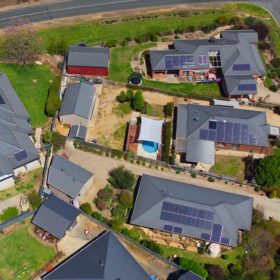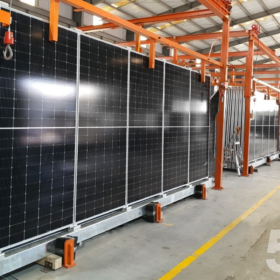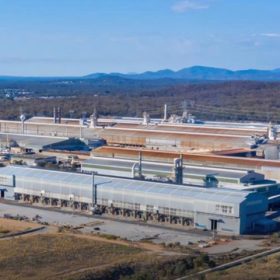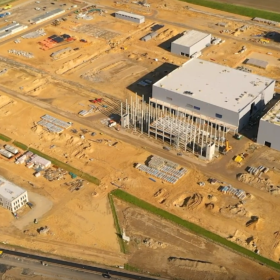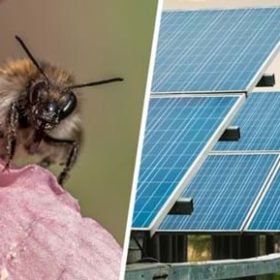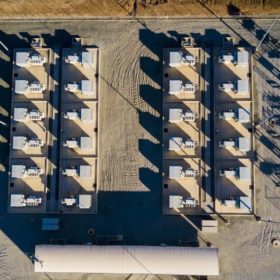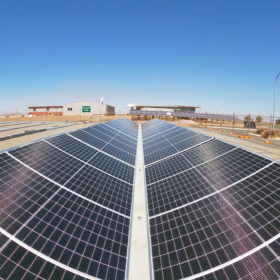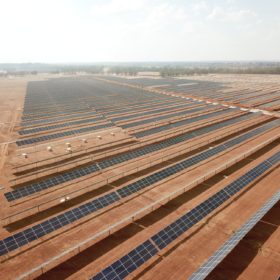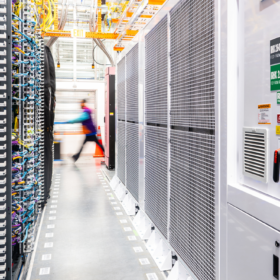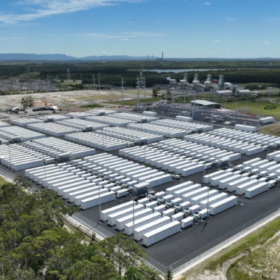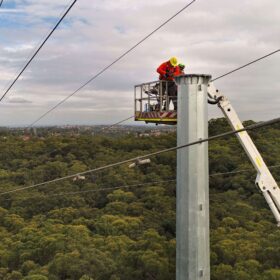Rooftop solar sparks record decline in wholesale power prices
The continued rollout of rooftop solar PV and large-scale wind and solar farms continues to reshape Australia’s electricity market with new data released by the Australian Energy Market Operator revealing that the penetration of renewable energy continues to drive new records in the National Electricity Market.
Made-in-WA cathode precursor plant gets underway
Construction has begun on a manufacturing pilot project to see battery-grade nickel, cobalt and manganese for precursor battery cathode materials (PCAM) in Perth. The facility is expected to be completed in early 2022 and is one of a number of developments that will look to establish Western Australia (WA) as a materials supplier to the growing battery manufacturing industry.
5B backs bigger is better with new generation of modular solar solution
Sydney-based prefabricated solar array manufacturer 5B has taken the wraps off a new generation of its re-deployable modular Maverick solar technology which it says is not only quicker and easier to install than the previous model but 30% more powerful.
Large-scale renewable uptake to help Rio Tinto’s brand rebuild
Mining giant Rio Tinto has been on the back-foot since its destruction of 46,000-year-old sacred indigenous sites last year, costing one chief executive his job and one country a timeless piece of its cultural heritage. Along with the impacts of Covid-19 and stock price decline, the company is seeking to rebuild its brand with improved emissions reduction targets, which will see multi-gigawatt solar and wind installations.
Report finds co-located hubs key to battery industry competitiveness
A report from Australia’s Future Battery Industries Cooperative Research Centre which analysed the development of battery hubs in the U.S., Germany and Japan, has found that co-location and cooperation between industry and government were key to hub success. For Australia to play the same game, it will have to leverage its wealth of resources, and clean up its act along the way.
Umicore to purchase 42,000 tons of Australian lithium battery material
Belgian materials company Umicore has signed a contract with Australia headquartered Vulcan Energy Resources to purchase up to 42,000 tons of lithium hydroxide over a five year period beginning in 2025. The material will be used in Umicore’s production of cathode materials for lithium-ion cell manufacturers.
Solar farms prove to bee hives of economic activity
A new study from researchers at the universities of Lancaster and Reading in the UK has managed to quantify the economic boost provided by the symbiotic relationship between solar farms and honeybee hives.
WA councils to partner for ‘Australian-first’ renewable energy PPA
In a joint energy power purchasing initiative tipped to deliver savings of up to $5 million, more than 50 Western Australian local government associations are set to partner on a renewable power purchase agreement which will see them using 100% renewable energy.
The changing landscape of the modular marketplace
The modular solar marketplace is growing, especially in Australia where remote mining and agricultural sites appreciate the benefits of compact, moveable solar. One new entrant is Western Australia’s CDI Energy with its “Rapid Solar Module”, which CDI founder and CEO Darryl Bower told pv magazine is up to 30% cheaper than fixed axis alternatives.
Canadian fund Omers plans to acquire 49% of FRV Australia
Fotowatio Renewable Ventures’ (FRV) Australian platform includes 637 MW (DC) in projects already operational or under construction, and a pipeline comprising 7 GW of solar projects and 1.3 GWh of battery storage.
